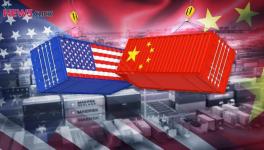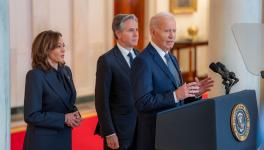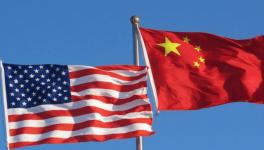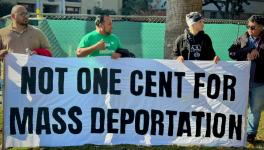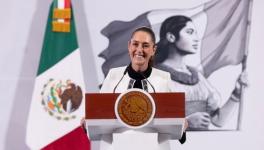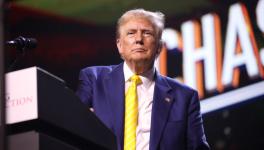Trump’s Inauguration: A Mixture of Regressive Policies and Possibilities of Reducing Wars Abroad
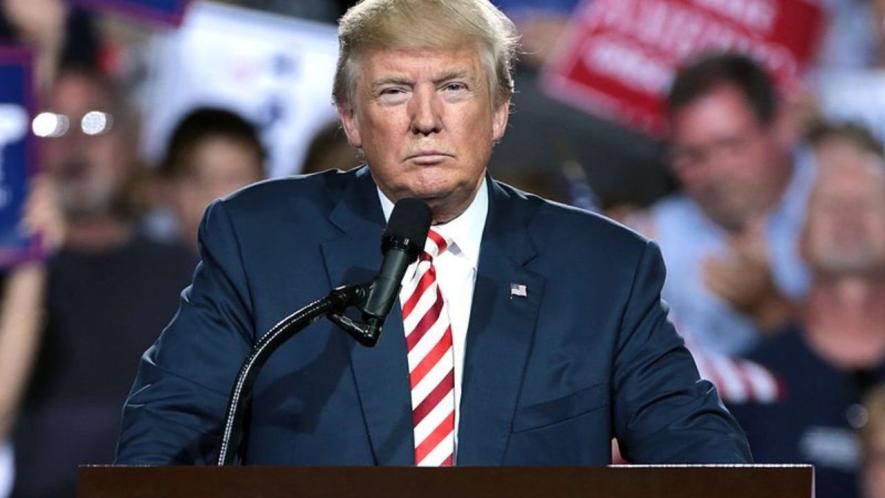
Image Courtesy: Wikimedia Commons
On January 20th, Donald Trump took over as the 47th President of the United States. He made a series of significant announcements and executive orders. These decisions reflect a break from the policies of the previous administration in certain areas: international treaties and organisations and certain domestic issues that are divisive but close to the heart of his MAGA followers.
One of the actions was the US withdrawal from the Paris Climate Agreement and the World Health Organisation (WHO). The richest nation in the world is allegedly too poor to support such initiatives as catastrophic climate change and the risk of global epidemics such as COVID-19. Trump cited "financial contributions" as a primary concern while criticising its handling of the COVID-19 pandemic. The US is the largest funder of the WHO, which will leave the organisation more dependent on private donors such as Bill Gates and various philanthropic organisations who also have their own agenda on public health, one of the key ones being upholding the current Patent and Copyright regime, particularly in medicine and software industries.
Domestically, Trump reaffirmed his stance on immigration by declaring a "national emergency" at the Mexico border. This includes a potential crackdown on birthright citizenship for children of undocumented immigrants and the designation of drug cartels as "terrorist" organisations. These policies are likely to have immediate repercussions for U.S.-Mexico relations and the millions of Mexican-origin individuals in the U.S. Trump's approach reflects a broader aim to reduce immigrants from Latin America into the US while maintaining the flow of "technical and scientific personnel"—the H1B visas—which the US badly needs for its tech industries. On Cuba policy, Trump has reverted to Cuba as a state sponsor of terrorism, a designation Biden had withdrawn.
On social issues, Trump announced policies that recognise only two genders, a move criticised for being regressive and counter to scientific understanding today of gender. These policies disregard the rights of LGBTQ+ individuals, undermining years of progress made globally in recognising gender fluidity and non-binary identities, even at the genetic level. LGBTQ+ issues have sparked debate about the balance between social norms, scientific evidence and peoples’ beliefs, with Trump clearly favouring his political base and its prejudices.
Trump has also issued pardons, including for individuals involved in the January 6 Capitol riots. While presidential pardons are not uncommon, they are viewed as partisan manoeuvres. His actions mirror those of President Biden, who issued presidential pardons to 39 Americans convicted of non-violent crimes, commuted the sentences of nearly 1,500 others, and provided immunity for 5 members of his family. These moves reflect the political divide in the US, where governance increasingly is shaped by partisan interests.
The TikTok ban has been temporarily relaxed with Trump granting a 75-day delay for negotiations over the platform's ownership. This raises speculation about potential deals involving key allies, such as Elon Musk, and highlights the administration's focus on controlling foreign-owned technology platforms and using its domestic muscle to do so.
It will be crucial to monitor Trump's policies in Latin America, West Asia, and conflicts like Ukraine, to understand the path Trump intends to follow. While in the Israel-Gaza ceasefire, Trump's role appears to have been positive, his policies towards Russia, Iran and China will determine the larger geopolitical issues of the day. On trade issues, the threat of tariff increases in China and other countries that do not toe the US line remains.
Trump's energy and climate policies are clearly regressive, with its focus on expanding oil and natural gas drilling while denying climate change. Such policies will not only impact global efforts to combat climate change but also exacerbate its effects within the US, as evidenced by increasingly severe wildfires in states like California.
In conclusion, Trump's inauguration has brought about policies that are socially regressive and politically contentious, while some changes could signal a reduction in US involvement in wars. For now, the world will have to wait and see how these developments unfold and what impact they will have on the world.
Get the latest reports & analysis with people's perspective on Protests, movements & deep analytical videos, discussions of the current affairs in your Telegram app. Subscribe to NewsClick's Telegram channel & get Real-Time updates on stories, as they get published on our website.










